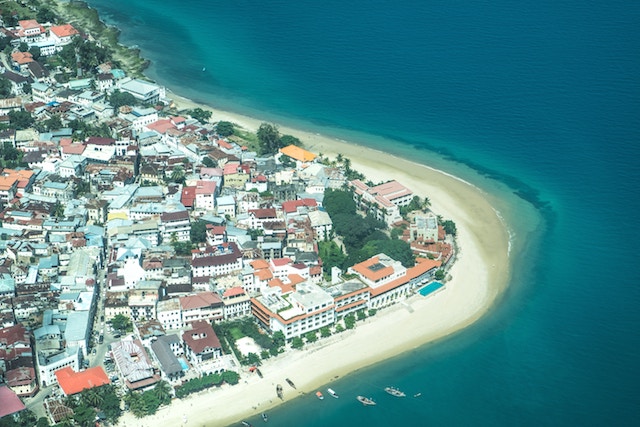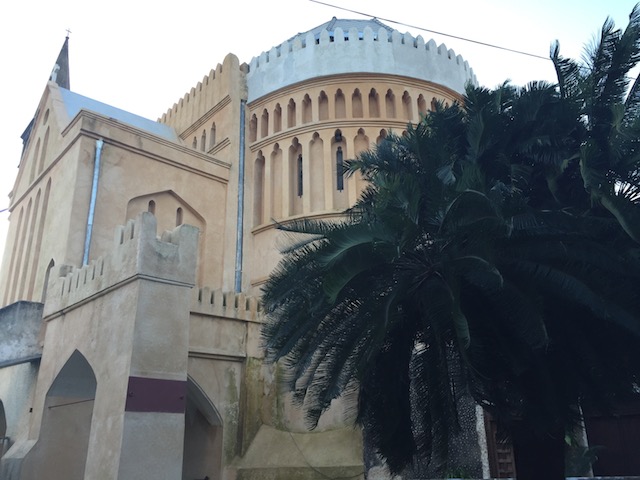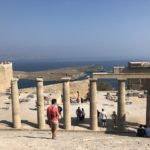Why I Buried My Heart in Zanzibar

I’m not your typical romantic. It’s not that I have any particular animosity toward the emotion. In fact, my reluctance is probably a cue that I hold it in a high and anxious regard. Like everyone, I’ve read the fairy tales and seen the rom-coms. I just prefer adventure stories.
Here’s one.
When David Livingstone, the famously intrepid and infamously irritable 19th century explorer planned for his death, he had one stipulation: leave a part of me in the land belonging to my heart. He died under a tree in Zambia. His best friend, a medicine man named Susi, cut out his heart and buried it on the spot. He then mummified the body and carried it back to England. Livingstone’s heart remains in Africa to this day.
He then mummified the body and carried it back to England. Livingstone’s heart remains in Africa to this day.
I didn’t have plans to die in Africa, though my mother was sure it would happen. She filled my suitcase with every type of medication, bandage and mosquito repellant. She reminded me daily, all the way to the airport in Detroit, that I could just stay home this summer.
I smiled, hugged her, picked up my 46.7lb-suitcase and made my way through the polyester-lined maze to security. A brief 36 hours later, I touched down in Zanzibar.
Zanzibar—like Timbuktu and Mars—is one of those places people use as a synonym for “exotic, far-off location.” The island off the coast of Tanzania is small, covered in white sand beaches and tourists. Stone Town is the capital city, comprising about two square miles of limestone cityscape. Its population is almost entirely Muslim, and the sound of the muezzin’s call to prayer is woven with salt and humidity into the air itself. The people are of more varied backgrounds: Omani Arabs, Indians, Tanzanians. They don’t all get along. They do all speak Swahili.
Though I was asked many times, I’m not sure what I expected to find in this place. I was there to volunteer and to conduct fieldwork for my thesis on the East African slave trade. That’s what I wrote on the visa application at least. What I was really looking for, I think, was an adventure story. And I found one.
I didn’t have plans to die in Africa, though my mother was sure it would happen.
It just also happened to be a romance.
I was proposed to four times in my first week. Most were young boys. Most were joking. The one I wrote home about was of the Maasai tribe. He claimed to have killed a lion, after all. And it always works wonders for the self-esteem when a girl knows her exact value in cattle.
My friends at my research site laughed at me. For my thesis, I was spending hours every day with the tour guides at Christ Church Anglican Cathedral and Former Slave Market Site.

“Hahaha! How many cattle for you Kathrin?” David, the first guide I met, assumed my name was more like Katherine than Katrina, and it stuck.
“300.”
“Haha, hakuna matata. Some people here like to joke with tourists, you know.”
“His heart is in Africa. After he died, his friend cut it out and buried it in Zambia. So, now, his heart is in Africa, his body is in England. Who can say where his soul is?”
I knew. Hakuna matata itself was a joke, pulled out for Disney-bred tourists who periodically burst into choruses of “it means no worries.” None of the tour guides lacked a sense of humor, though some exercised it more than others. Elvis was one of those.
Yes, Elvis is his real name. No, he doesn’t sing.
I started following his tours because of the comedy. He introduces himself as the “King of Rock and Roll.” Then he asks the tourists if they speak Swahili. They say no. So he starts speaking Swahili. They laugh at first, then look at me in desperate confusion. Finally he takes mercy and starts again in English.
Check out Pink Pangea’s Writing, Yoga, and Meditation Retreats.
“You know of David Livingstone?” They nod.
“His body is buried in Westminster Abbey, but his heart is not there with it.” Cue looks of surprise.
“His heart is in Africa. After he died, his friend cut it out and buried it in Zambia. So, now, his heart is in Africa, his body is in England. Who can say where his soul is?”
I never answered the question of Livingstone’s soul. But I did say yes to a date.
Severing a heart is always fatal. The challenge is keeping it connected from a distance.
We went to a soccer game: Zanzibar vs. Uganda. I was one of maybe ten women in the entire place. And other than the coaches of the two teams, I was probably the only mzungu—white person—there too. But the thing that shocked me was the quiet. Football in Zanzibar has none of the rowdiness of American football. People watch. They chat. They go home.
So Elvis and I chatted. And we laughed. And then we went home. The next day we went to the beach. And the day after we visited the 16th century Fort. And then the gardens. For two weeks, we dated. And we chatted. And we laughed.
And then I left.
A heart buried in a foreign land has a romantic air about it. That is, until you meet Susi and his knife. For a dead Livingstone, it is painless. But for someone just discovering her heart, seeing where the lines between adventure and romance fade, it is anything but. Severing a heart is always fatal. The challenge is keeping it connected from a distance.
I’m not your typical romantic. It’s not that I have any particular animosity toward the emotion. I just have far too much of it from far too far away.
I Buried My Heart in Zanzibar
Related Reading
Romance, Health, and Safety in Zanzibar
Have you traveled to Zanzibar? How was your trip? Email us at [email protected] for information about sharing your experience and advice with the Pink Pangea community. We can’t wait to hear from you.
I Buried My Heart in Zanzibar photo credits: Katarina Marks








